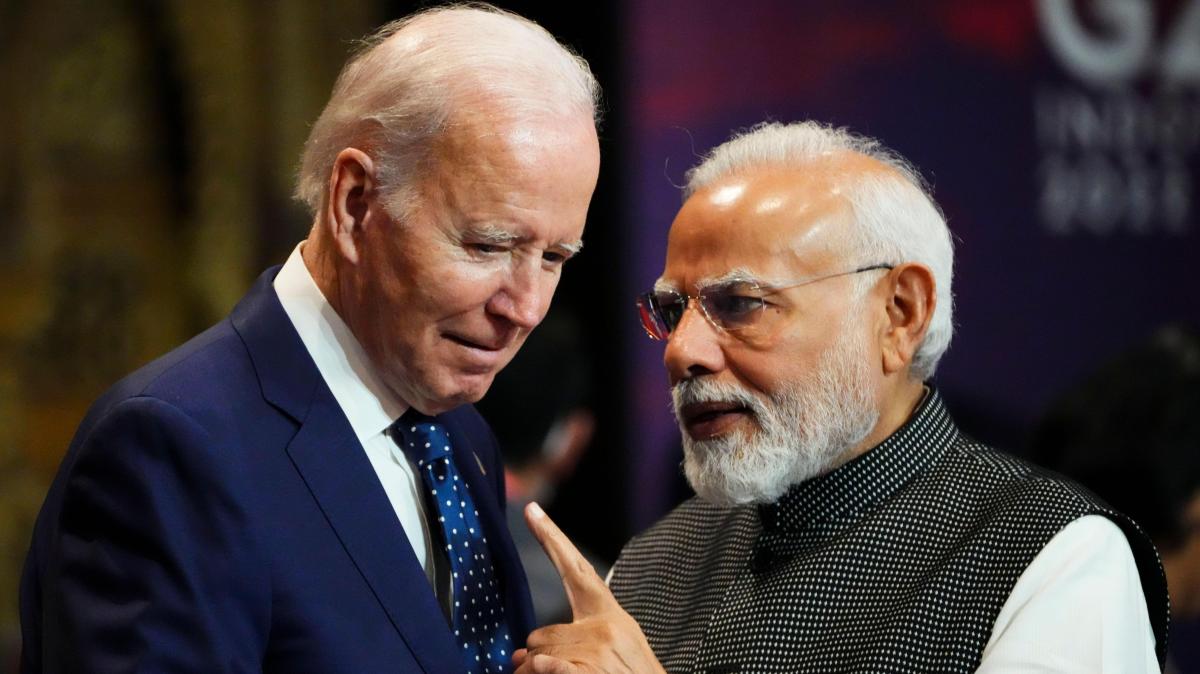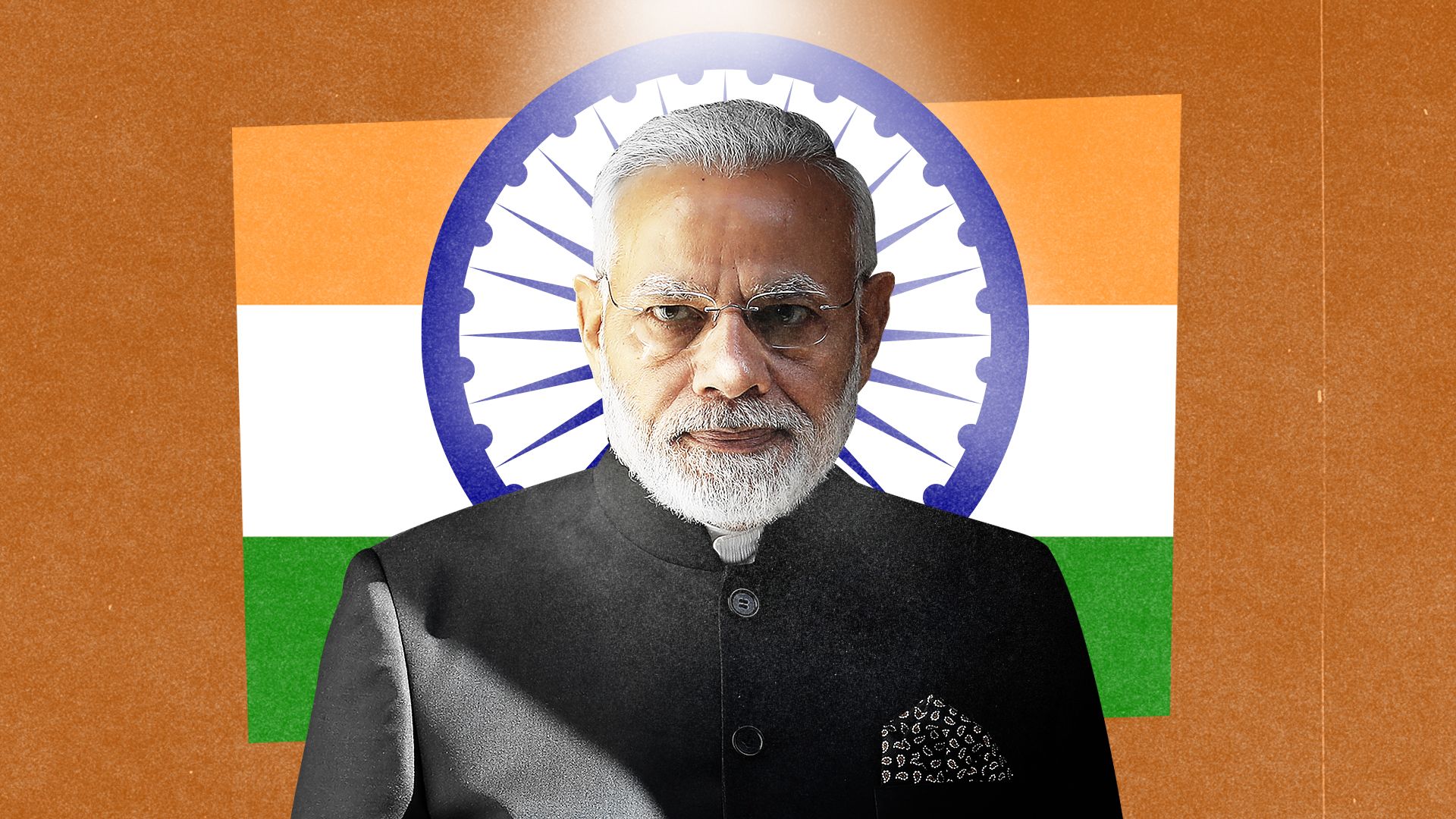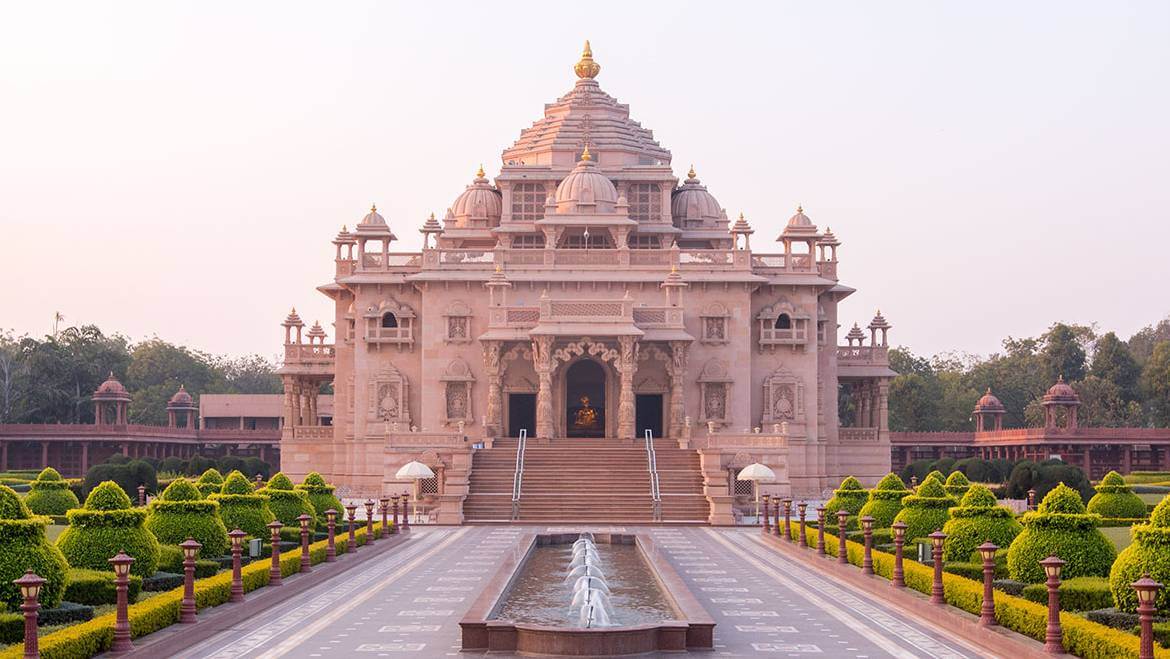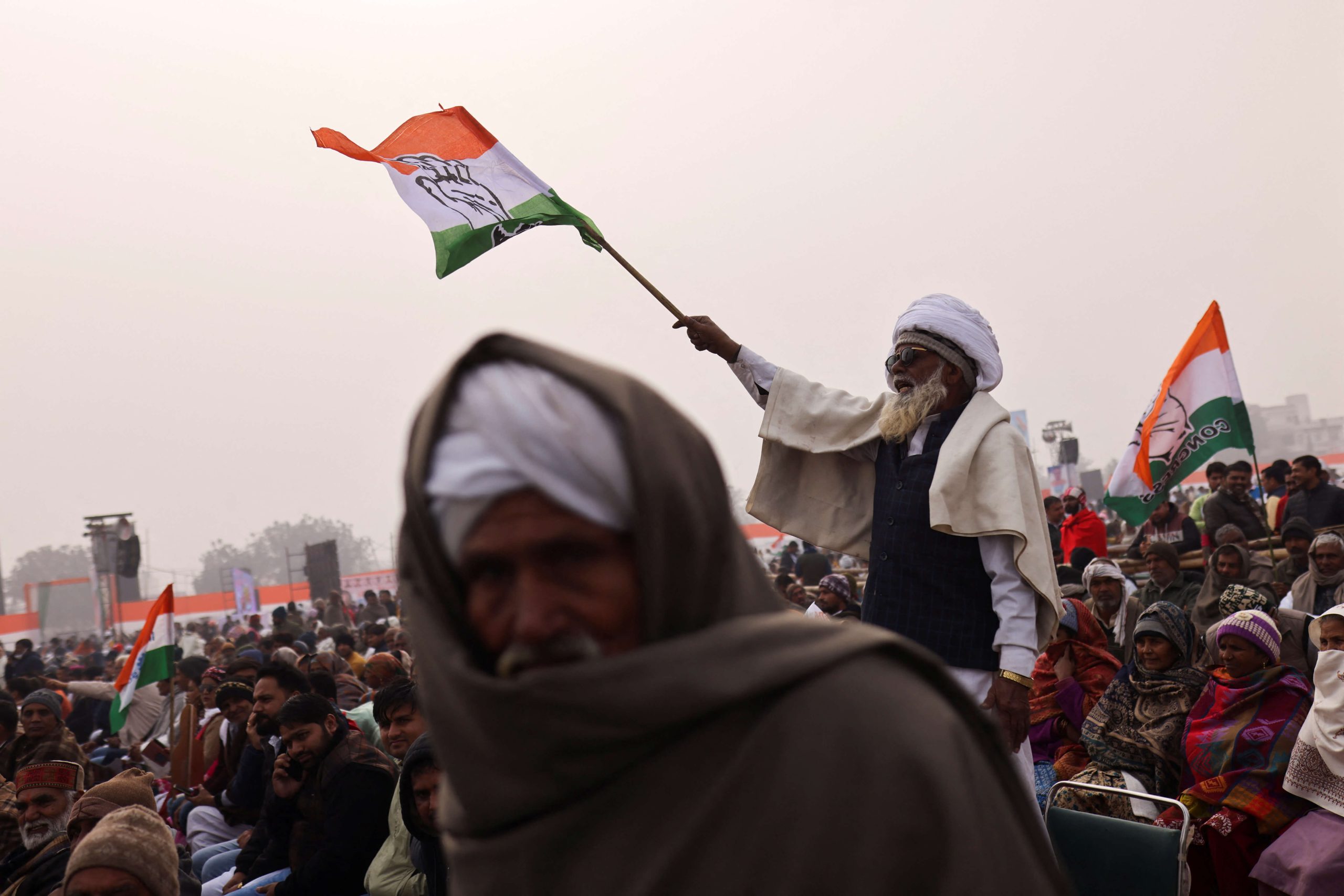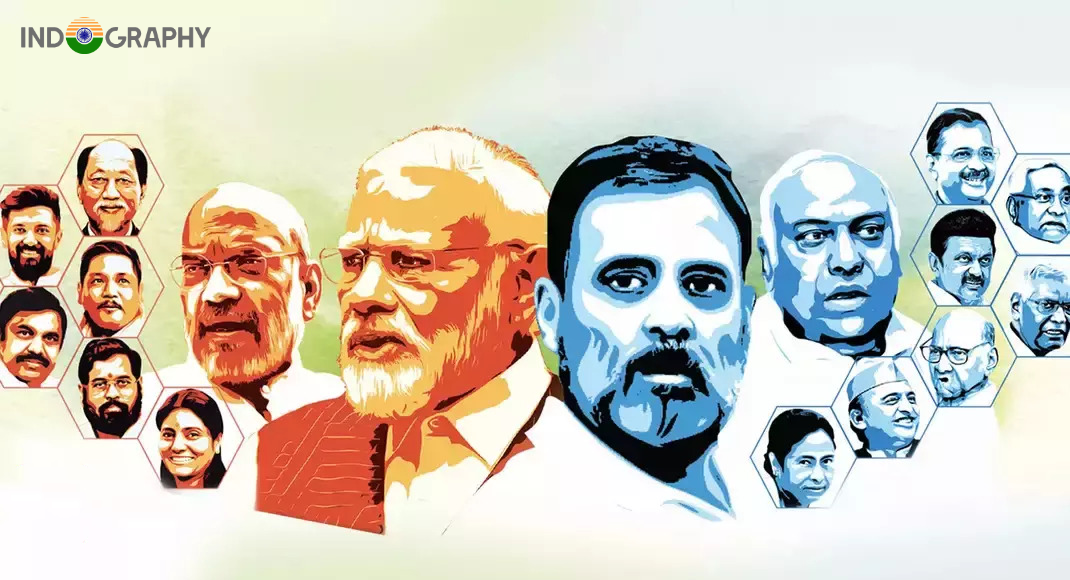Following its last electoral defeat, the Congress party is making an effort to revive the stale and unproductive “North-South” division argument. However, over the past ten years, Narendra Modi has categorically contested and dismantled this narrative, which was formerly motivated by political expediency. Modi’s achievements, the stories he has written, and his attempts to dispel nefarious divisions have changed the political terrain.
The ‘North-South’ storyline was popular in the past among people who made their living by taking advantage of social and religious divides. The Congress, which has now labelled the north as backward as a result of electoral setbacks, needs to consider if this position is logical or the result of irritation. Nearly 40% of people backed the Congress despite its rejection in the north. Does the party dismiss this substantial support as ‘not-needed’?
Despite attempts to confine the BJP to particular regions, the party’s influence is growing, as seen by its recent electoral victories. The BJP gained eight seats in Telangana, doubling its share of the vote and making history by defeating the incumbent chief minister in Kamareddy. Similar to this, after years of democratic struggle, the BJP gained ground in Mizoram and became the main opposition party in West Bengal.
The notion of a dividing ‘North-South’ dichotomy is challenged by Modi’s proactive involvement with many cultural, religious, and civilizational components of India, notably his endeavours to highlight Tamil culture and rebuild Adi Shankara’s samadhi. Some members of the intelligentsia and political leaders who are trying to revive an antiquated narrative have been troubled by this activism.
People who follow the political development of India after independence will recall that the BJP emerged from the Karnataka assembly elections in 1983 with 18 seats, defeating claims that it was a “party of the north” or restricted to the “Hindi heartland.” This was three years after the party’s inception. Ignoring this appeal across India is a purposeful mistake.
The north has historically been the birthplace of spirituality, culture, and knowledge, with cities like Varanasi, Ayodhya, Patliputra, and Ujjain serving as important hubs. But the effect of the western and southern parts of India, where visionaries like Sri Aurobindo, Eknath Ranade, and Swami Vivekananda made a big impact, shows how interwoven the country is. It is a disservice to the deep cultural and civilizational exchanges that have built India to refer to a “North-South” division.
The false dichotomy is challenged by contemporary circumstances. Gujarat, Uttar Pradesh, Maharashtra, Tamil Nadu, and Karnataka are home to three of the top five GDP-contributing enterprises. Neglecting the “Hindi heartland” as a region that only benefits large corporations undervalues the important contributions made by southern industrial giants such as TVS Motors, Apollo Hospital Enterprises, and Zoho Corporation.
Following their defeat in Chhattisgarh, the Congress desperately declared that Gautam Adani had triumphed. Such controversial remarks belittle Adani’s domestic investments and imply a lack of knowledge of India’s complexly interwoven economic environment.
Those who criticise Modi’s popularity frequently accuse voters of abetting Nazism. However, this exposes a polarising worldview in addition to disparaging democratic decisions. It is difficult to believe that the south is immune to such dynamics because there are similar communal and polarising tendencies there as well.
When parties losing to Modi turn to mocking the choices of the electorate, attempts to depict the ‘cow belt’ as bringing India down demonstrate an anti-democratic attitude. In India, cows are considered sacrosanct, and the story of the “cow belt” is made up and meaningless, like the Bermuda Triangle.
The Aryan-Dravidian false dichotomy has been refuted by Swami Vivekananda, Sri Aurobindo, and Babasaheb Ambedkar, who agree with Modi’s vision of ‘Ek Bharat, Shresht Bharat.’ Opposition parties risk becoming irrelevant if they continue to promote a “North-South” division, which is detrimental to India’s unity.
In summary, the attempt to revive the ‘North-South’ division is not only out of date but also harmful to India’s complex and multifaceted national identity. Beyond regional divides, Modi’s inclusive and unifying vision for the country emphasises the need for an integrated and cohesive India. The split narrative’s proponents need to reevaluate their strategy in light of the shifting political climate.
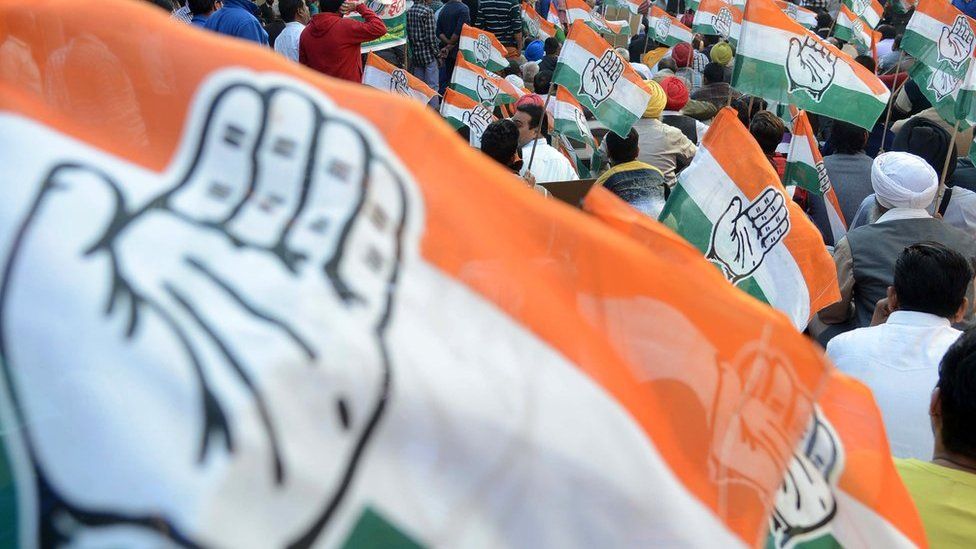

Add a comment


